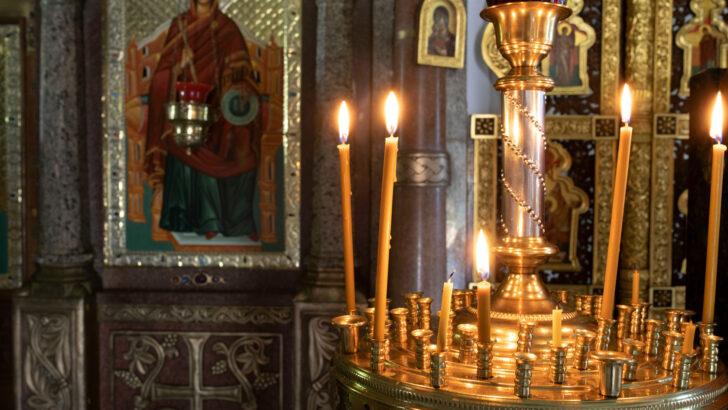Q: How is it possible that the Orthodox practice of the Sacrament of the Eucharist would ever be considered as the true body and blood of Christ from the Catholic perspective simply because of an understanding outside of the unbroken chain of apostolic succession?
A: For context, let us review what we mean when we refer to the Eastern Orthodox Churches. Historically, we believe that the one, holy, Catholic and apostolic Church was founded with the descent of the Holy Spirit at Pentecost, shortly after Jesus’ bodily ascension into heaven. As Jesus no longer physically walked the earth as he once had, he entrusted the continuance of his saving mission to the apostles.
The apostles, in turn, spread throughout the world founding local Churches (in some ways, the rough precursor to our modern dioceses), and ordaining their successors (early bishops) to take their places in the shepherding of these local Churches. Many of these local Churches developed their own distinct liturgical traditions and other customs influenced by local needs and culture.
Initially, the universal Church was one unified structure of local Churches under the ultimate oversight of the pope in Rome, who was the successor to St Peter as the leader of the apostles. But divisions and tensions began to arise even in the Church’s first few centuries. Some of these tensions were at least officially resolved by the early ecumenical councils, which clarified disputed questions of Catholic doctrine. However, due to some complex religious and political conflicts, the year 1054 saw “the Great Schism,” in which the pope excommunicated the patriarch of Constantinople, the bishop-leader of the local Churches in what had been the Eastern part of the Roman Empire – with the patriarch in turn issuing his own excommunication against the pope.
The Churches of the East which rejected the universal authority of the pope became known as the Orthodox Churches. Although there are some doctrinal differences between the Catholic Church and the Orthodox, for the most part disagreement on the role of the Holy Father remains the major obstacle to unity between the Catholic and Orthodox Churches.
We as Catholics actually do believe that apostolic succession is significant and meaningful enough to allow for Eastern Orthodox Churches to have a valid celebration of the Eucharist. As the Catechism of the Catholic Church tells us: “The Eastern Churches that are not in full communion with the Catholic Church celebrate the Eucharist with great love. These Churches, although separated from us, yet possess true sacraments, above all-by apostolic succession – the priesthood and the Eucharist, whereby they are still joined to us in closest intimacy.” (See CCC 1399)
Keep in mind that the apostolic succession in the Orthodox Churches goes hand-in-hand with our shared sacramental theology. That is, Catholics and Orthodox not only share belief in the Real Presence in the Eucharist, but also a shared understanding of the Sacrament of holy orders and thus the nature of the priesthood. This is in contrast to the various Western Christian communities we call “Protestant,” because in addition to breaking communion with the Holy Father in Rome, the sacramental theology of Protestant denominations tends to be a fairly radical departure from what we believe as Catholics.
Similarly, there are other Catholic schismatic groups – with “schism” defined as a refusal to submit to the authority of the Holy Father, as noted in canon 751 of the Code of Canon Law – which nevertheless have a valid Eucharist due to apostolic succession, despite their ordinations and celebrations of the Eucharist being generally illicit. One contemporary example of this would be the Society of St Pius X.
But the Eastern Orthodox Churches are not to be confused with the many Eastern Catholic Churches. Eastern Catholics have different laws and a different liturgical tradition than Latin (aka “Roman”) Catholics, but Eastern Catholics remain in full communion with the Holy Father.
Jenna Marie Cooper, who holds a licentiate in canon law, is a consecrated virgin and a canonist whose column appears weekly at OSV News.



